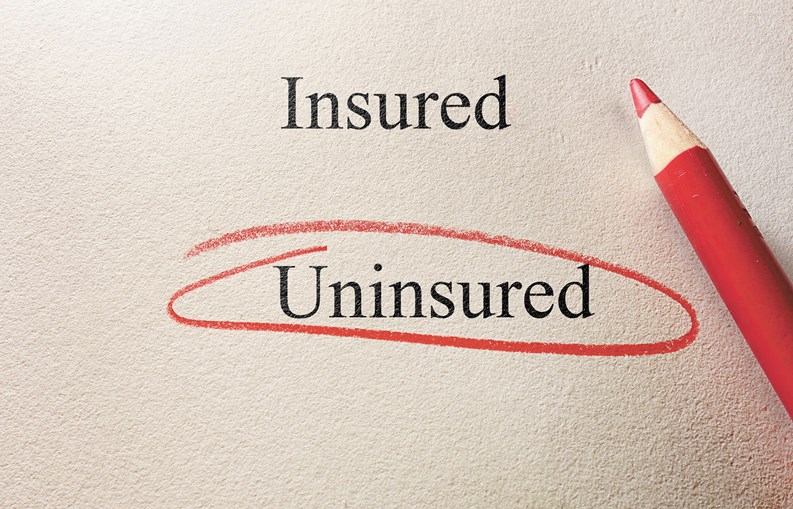Insurance can seem like a mundane administrative afterthought – right up to the moment you need coverage. In a community association, just because a responsible board handles the lion’s share of maintaining the policy covering common areas doesn’t mean that non-board residents are off the hook. It’s vital that owners see to it that their individual units – and the items therein – are appropriately covered as well, lest an accident or act of negligence causes damage to not only the respective owner’s property, but to the neighbors’ units as well.
In fact, an owner who lets his or her coverage lapse or never gets insured at all – or a board that doesn’t maintain some sort of registry of individual homeowner’s policies – can cause a world of hurt for their entire communities. As such, it’s crucial for boards to disseminate the necessary information about what must be covered, and keep track of who’s insured for what, under what circumstances, and when that coverage expires. A database of every active owner’s policies can save an association a significant amount of money down the line.
Responsible Residents
Ideally, information pertaining to individual owner’s insurance requirements will be contained in an association’s bylaws. That can give residents an a clear mandate as to what needs be covered. From there, it’s important that they know the risks inherent in opting out.
“Owners are responsible for certain portions of the units which they own or lease,” says Edward J. Mackoul, President of Mackoul Risk Solutions, an insurance agency with offices in New York and New Jersey. “Their responsibility is dictated in the bylaws, and can be as little as just finishing – such as paint on the walls – or as much as everything inside the unit other than the four walls, floor, ceiling, and partitions. Most bylaws indicate that an owner is responsible for finishings and improvements made to the unit, which include improvements made by a prior owner. So even if the current owner hasn’t made any changes, they may still be responsible for insuring them if they want things to be restored in the event of a covered loss.
“If they fail to carry insurance, they run the risk of not being able to restore the unit to the condition it was prior to the damage,” Mackoul continues. “The insurance for the property will only pay to put the unit back to the condition it was in at the time when the property was built. So if the building is only a few years old, that may not be much of an issue. But if the building was constructed in the ‘50s, it’s a safe bet that the bathrooms and the kitchen have since been improved, at the very least. Without that proper coverage, the owner would have to pay out of pocket for anything for which they’re responsible in the unit. In addition, if they fail to carry insurance, the owner runs the risk of being unable to replace possessions like clothing, electronics, and furniture, and they may even have to pay out of pocket to live elsewhere, should the unit be rendered uninhabitable due to the cause of loss.”
In Illinois, a failure to carry an HO-6 insurance policy is actually a violation of the state’s Condominium Property Act. “They wouldn’t have liability coverage for any damage that they caused to another unit, no insurance to reimburse the association’s deductible if required, and no insurance policy to pay for temporary housing should their unit not be livable,” warns Jennifer Eilert, Commercial Lines Manager at Condominium Insurance Specialists of America in Elgin, Illinois. “In the event of an HOA experiencing a loss to a home or unit, without an HO-3 policy, the homeowner in question could potentially lose the structure of their home, in addition to personal property and decorative items.”
That’s bad enough, but the real trouble comes when one owner’s damage ripples outward, causing problems in other units. “The liability to others would certainly be of more concern to unit owners,” notes Michael D’Altrui, Senior Vice President and Partner with Conover Beyer Associates in Manasquan, New Jersey. “If you have a water tank burst in your unit, and the water leaks down to the unit below you, causing damage, that’s going to come under the liability portion of the policy. So, as a fellow unit owner, you certainly want to know that the condo association is enforcing everyone maintaining their own coverage.”
Language pertaining to insurance logistics may already be embedded within an association’s governing documents. “Who pays for what may depend on what the bylaws declare,” says an agent with HPM Insurance in Amherst, New Hampshire. “Ultimately, the tab could fall upon the association, depending on the deductible. And many associations are choosing a very high deductible because they don’t want to pick up some of these kinds of claims. So if there’s a leak in one unit, for example, but the unit owner a floor below is the one to sustain the damage, and the association’s deductible is quite high–then that unit owner on the receiving end of the leak may have to cover their own damages through their unit-owner’s policy.”
A Board’s Burden
There are myriad ways that a board can stay on top of the individual insurance statuses of the association. It can be as simple as establishing a shared Google spreadsheet with expiration dates, and checking in with owners once per year. The important thing is that the board implement some policy for making sure everyone stays up to date with their coverage.
In Illinois, the law is yet again already on top of this, and not leaving anything to chance. “Section 12(h) of the Illinois Condominium Property Act allows condominium associations to require unit owners to obtain insurance covering their personal liability,” says Eilert. “If the association’s declarations, bylaws and/or rules are silent on the issue, the association should reach out to their attorney to help guide them through the process of implementing this as a requirement. Normally, these associations will request the unit owners’ certificates of insurance and track the annual renewal to make sure that coverage is in place from year to year. Unfortunately, HOAs do not have the same language in the Common Interest Community Association Act to support them, but mortgage lenders are typically more careful about making sure that homes are insured. A board can also seek remedies through their HOA attorney to help adopt language in their governing documents that would allow them to require proof of insurance.”
Outside of Illinois, however, there may not be any legal requirement for owners to maintain homeowners insurance, and as such, associations may not have any relevant language in their bylaws. “Boards of those associations that do have this type of requirement often try to have themselves listed as an ‘additional insured’ on an owner’s policy, which won’t give the board itself any coverage,” explains Mackoul, “but does allow them notices regarding cancellations, which is really what a board wants.”
What Could Go Wrong?
Again, insurance is one of those things that’s easy to talk one’s self out of. ‘I’ve never set anything on fire before!’ or ‘I know when to stop filling my tub!’ are pretty reasonable arguments. So why take on an additional expense? Well, because there are pretty extreme consequences for an uninsured owner, should the unthinkable happen – and the negligent owners are not the only ones who may suffer.
“In the worst scenarios, damages caused by one unit owner who doesn’t have appropriate coverage in turn damages other units, and those owners are left to have their policies respond – and the association’s policy respond – thus potentially increasing the cost of insurance for everybody, all due to one person’s negligence,” warns D’Altrui. “And the recourse against the offending owner is that they can be sued, and their assets put at risk. Without the risk transfer of an insurance policy in place, anything you own could be at risk were the other affected owners to sue. The offending owner would be exposed completely.”
So, while it may seem daunting for a board – especially in a larger association – to keep tabs on the various insurance policies of its owners, it may well pay off down the road.
“My suggestion is for buildings that require individual owners to maintain insurance to initially request that all owners and renters provide a copy of their insurance, and then all renters and new owners provide proof at closing,” says Mackoul. “This will ensure that everyone has coverage initially. The board should also require that it be listed as an ‘additional interest,’ so they get those cancellation notices and reinstatements. Otherwise, maintaining a list of insurance policies becomes a nightmare. And if a board wants, it can implement something in the bylaws, which indicates that should an owner not maintain insurance as they are required, there will be a fine or other recourse.”
Mike Odenthal is a staff writer/reporter for New England Condominium.










Leave a Comment